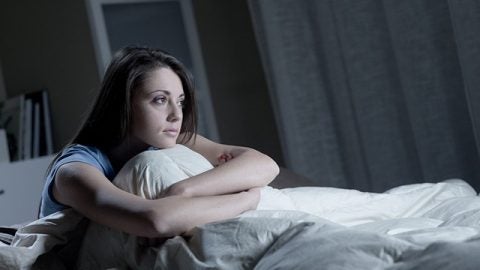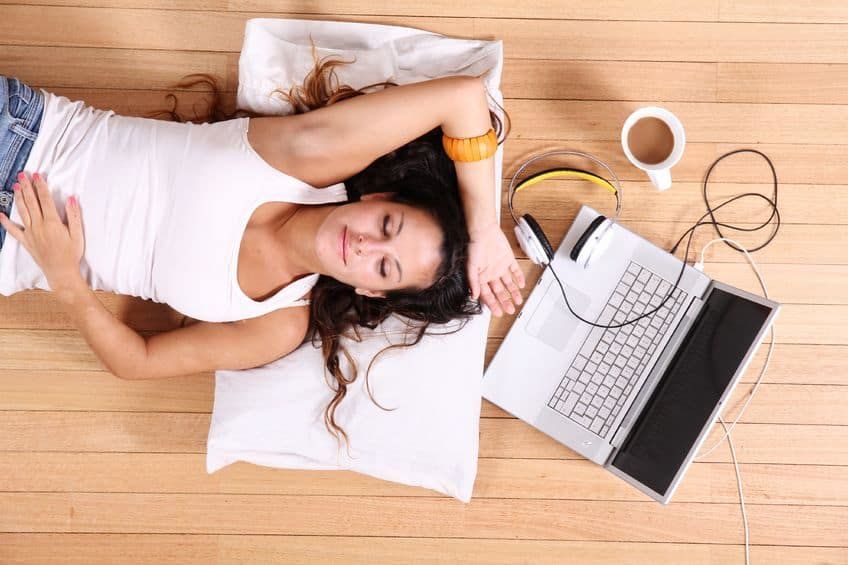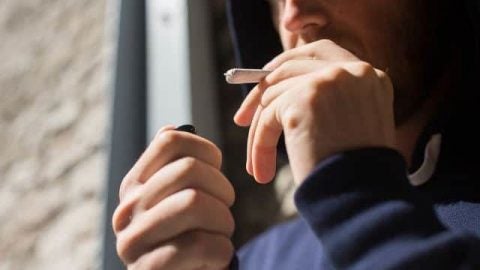Many people depend upon the rich, dark aroma and stimulating feeling a cup of coffee provides in order to stay alert and productive throughout the day. This is often due to the caffeine drug that is naturally found in coffee beans. This stimulant is most likely the most popular drug in the world as it is entirely legal, and is found in many different plants used for consumption.
Unfortunately, it also has some drawbacks, one of them being the main source of sleep disruption. If you have wondered what the best way to fall asleep after drinking coffee is, this article may help explain how caffeine works, and what steps you can take to fall asleep faster after indulging.
Coffee and Caffeine: The Perfect Match?

Although it has no nutritional value, there is no health risk associated with moderate coffee consumption. Most doctors agree 24 ounces coffee, approximately 250 milligrams of caffeine is safe for daily use. Anything over is considered excessive and can have more serious side effects than what is discussed in this article some people. This is especially true for young, developing children and teens.

Caffeine Symptoms

- Increased alertness and trouble focusing
- Reduction in fine motor skills
- Anxiety, nervousness, or dizziness
- Irritability
- Headaches and rapid heartbeat
- Excessive urination
Combating Caffeine Related Insomnia

- Have a specific sleep schedule for going to bed and waking your body will recognize even when stimulated.
- Create a relaxing pre-bed routine, such as taking a hot shower or bath, dimming the lights, diffusing essential oils that soothe (such as lavender), and turning off all screens and hour or two before bed.
- Make sure you have the best mattress and pillow for your personal sleep position and overall comfort.
- Don’t use tobacco, eat food, or drink alcohol for 2 to 3 hours before bed.
- Maintain your bedroom only as a place to rest (and indulge in nocturnal activities).
Ways to Fall Asleep While Stimulated
The above-mentioned suggestions are all healthy ideas for a regular bedtime routine to help you both mentally and physically relax, but for some, it takes time to create those habits or recognition. If you find yourself more stimulated than usual or realized you are struggling to relax due to late caffeine indulgence, try some of the following for immediate relief:
- Diffuse relaxing essential oils
- Meditate or practice simple yoga poses
- Take a brief, relaxing walk
- Read a book
- Take a warm bath
- Drink warm milk
What if Coffee Makes Me Sleepy?

But most of all, it blocks adenosine receptors in the brain that regulate the sleep/wake cycle. It binds to these molecules to keep them from being received, but once it wears off the molecules will bind to their receptors which causes sleepiness. Most caffeine drinkers experience a ‘crash’ once the effects wear off- although it is often during the peak of the day and may not be very noticeable overall. For those who are more sensitive to caffeine, or who metabolize it faster, this ‘crash’ may come on much more strongly, or quickly.
You may want to check out: Best Coffee Makers
Conclusion
If you are a late-night coffee drinker and struggle with insomnia, you need to create some healthier habits. Either design a schedule that allows your body to relax and recognize it is time for bed, or you need to rethink your caffeine use and its timing. For those who struggle from time to time from a late caffeine rush, take a brief timeout to help your body relax and reset itself to stimulate rest.

